Kazakhstan's President Needs to Go Easy on the Photoshopping
It appears that Kazakhstan's interim president, Qasym-Zhomart Tokayev, has been heavily Photoshopping his face before the country's big election next month, as one does.
Before and after images of Tokayev were compared by Radio Free Europe/Radio Liberty (RFE/RL) on Tuesday, revealing that drastic changes had likely been made to the president's face shape and skin texture.
It's not clear who edited them, but photos appearing to have been beautified were published by Tokayev's office on the government's website and on his social media accounts.
This was especially noticeable in photos showing Tokayev meeting Russian president Vladimir Putin in Moscow last month.
In photos released by the Presidency of Kazakhstan, the skin beneath Tokayaev's chin has been digitally tucked. His face also seems to have been smoothed and made more even-toned.
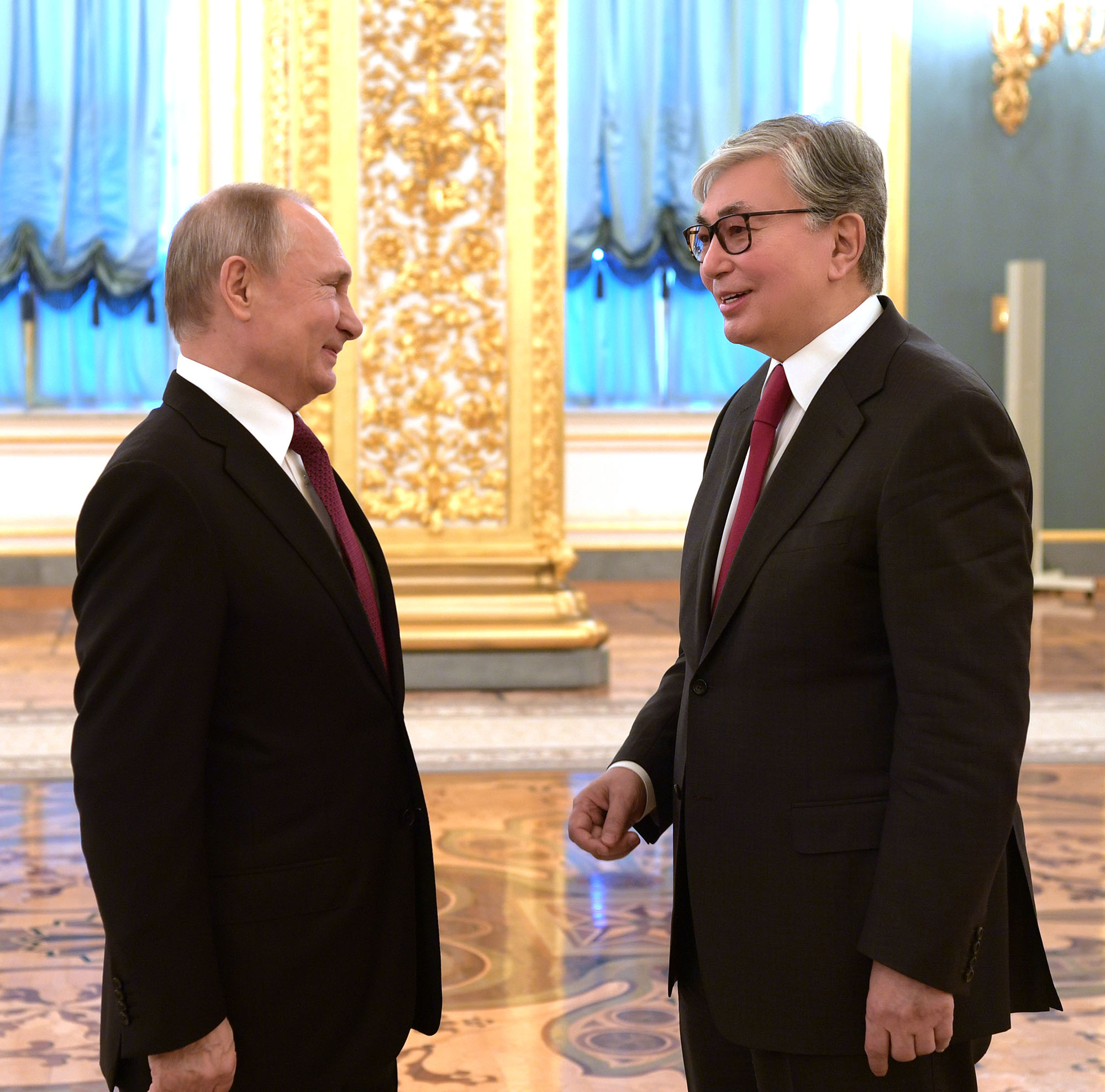 Photo of Russian president Vladimir Putin and Kazakhstan interim president Qasym-Zhomart Tokayev, as published by the office of Tokayev. Image: Presidency of Kazakhstan
Photo of Russian president Vladimir Putin and Kazakhstan interim president Qasym-Zhomart Tokayev, as published by the office of Tokayev. Image: Presidency of Kazakhstan But photos of the meeting published by the Russian Presidential Press and Information Office clearly show a different version of Tokayev.
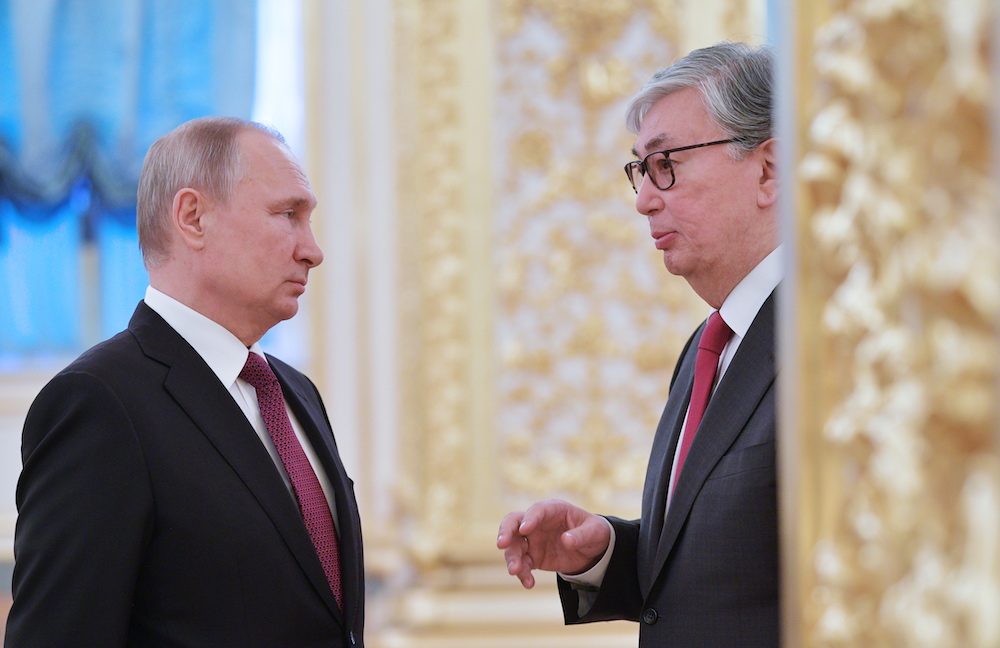 A photographer's photo from the same meeting in Moscow. Image: Alexei Druzhinin/TASS/Getty Images
A photographer's photo from the same meeting in Moscow. Image: Alexei Druzhinin/TASS/Getty Images Later that month, photos of Tokayev and South Korean president Moon Jae-in were similarly edited-again, the Kazakh leader's profile was slimmed and his skin blurred.
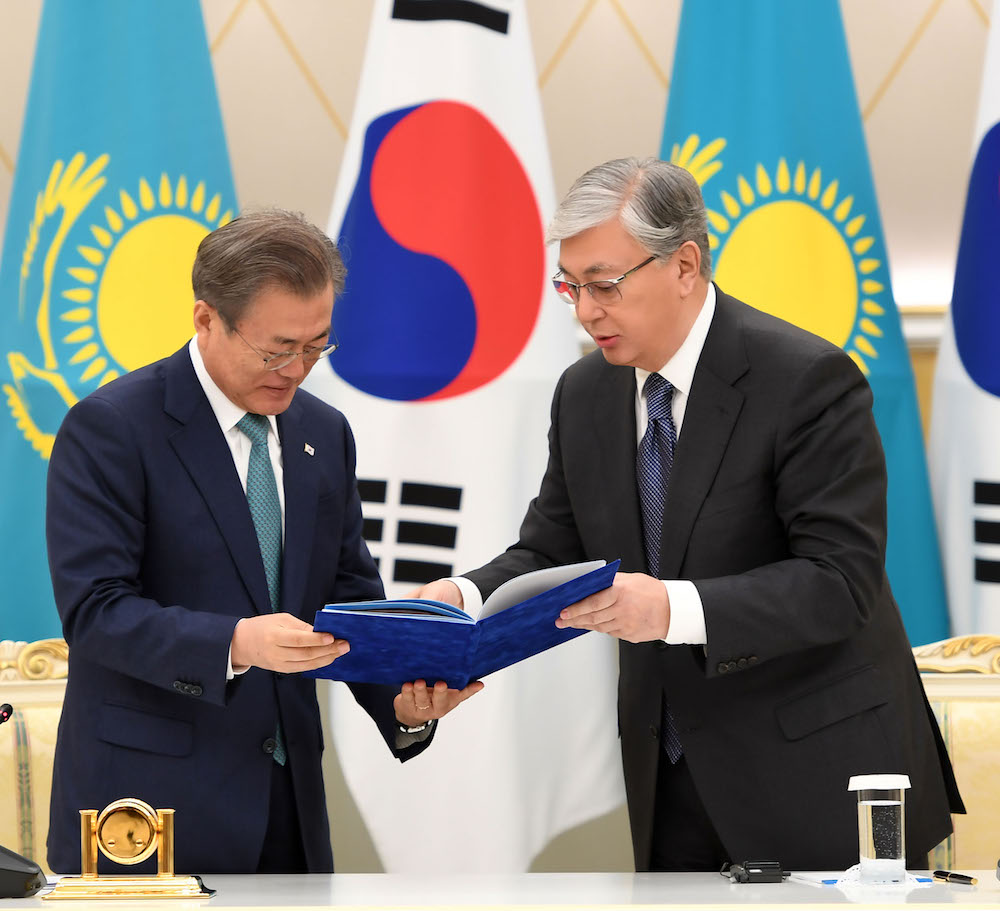 A photo of South Korean presiden Moon Jae-in and Kazakhstan interim president Qasym-Zhomart Tokayev, as published by the office of Tokayev. Image: Presidency of Kazakhstan
A photo of South Korean presiden Moon Jae-in and Kazakhstan interim president Qasym-Zhomart Tokayev, as published by the office of Tokayev. Image: Presidency of Kazakhstan These changes look quite obvious when compared to other photos from the event.
Another meeting that month with Hungarian prime minister Viktor Orban received the same treatment.
A photo released by Orban's press office is from a slightly different angle but shows marked differences in Tokayev's skin and general tone.
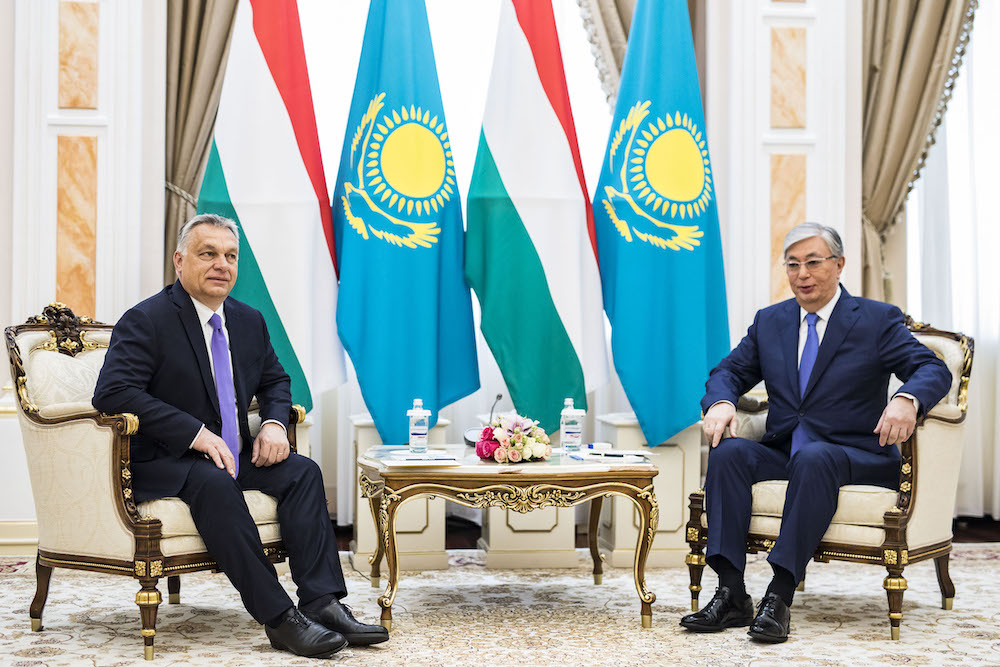 A similar photo published by the office of Hungarian prime minister Viktor Orban. Image: Website of the Hungarian Government
A similar photo published by the office of Hungarian prime minister Viktor Orban. Image: Website of the Hungarian Government Motherboard unsuccessfully tried to reach Tokayev's office for comment via fax which is the only contact method on the government's website apart from a physical address. However, the number listed was six digits long, and fax numbers in Kazakhstan are at least seven digits after the area code.
RFE/RL speculated that Kazakhstan's former president Nursultan Nazarbayev was lightly edited in official photos as well.
Other world leaders have been accused of altering their appearance, too. In 2017, I wrote about North Korea's Kim Jong-un allegedly Photoshopping his ears to be smaller. President Donald Trump has also shared photos in which he's been slimmed and his hands made longer.
"A few years ago, we performed a small scale unpublished study by randomly downloading more than 100,000 images from Flickr and running existing forensic analysis algorithm on them," Siwei Lyu, an associate professor at SUNY Albany whose research includes digital forensics, told Motherboard.
"More than half of those images were likely to have been edited in certain way," Lyu said.
I also noticed that Getty was licensing photos of Tokayev that appear to have been digitally manipulated. Both of the following images are credited to the president's office and were available on Getty's website as of Thursday.
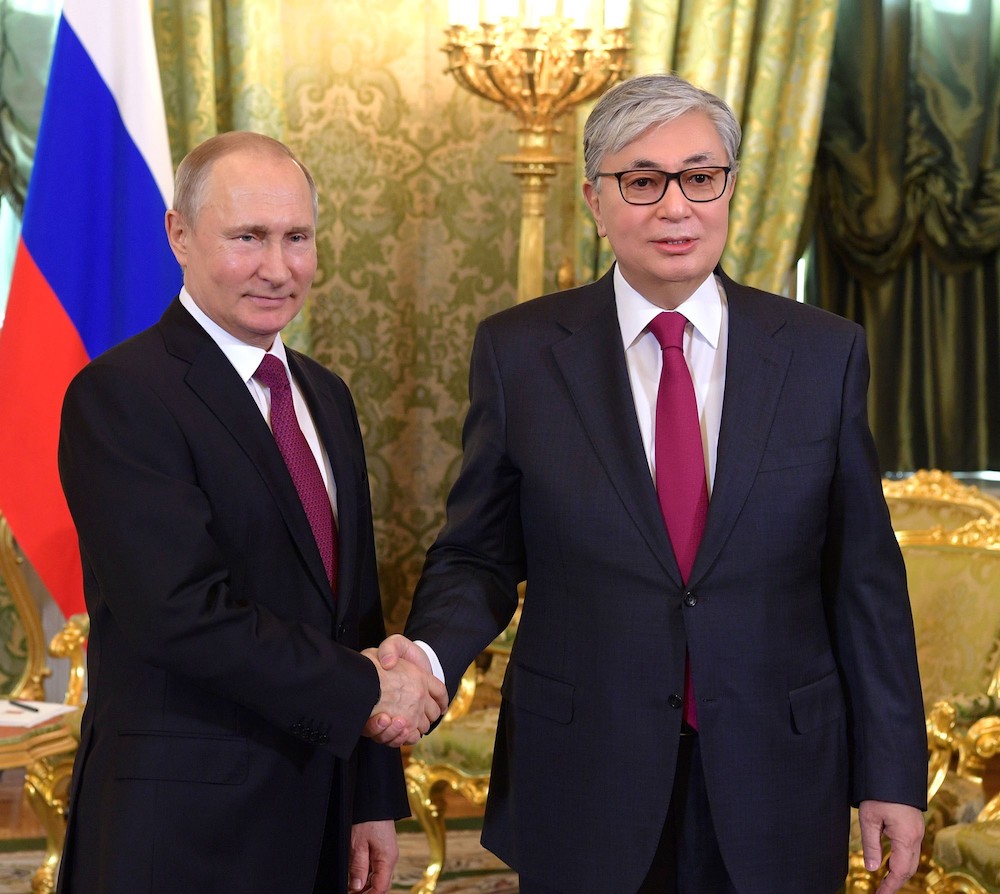 Image: Presidency Of Kazakhstan/Handout/Anadolu Agency/Getty Images
Image: Presidency Of Kazakhstan/Handout/Anadolu Agency/Getty Images 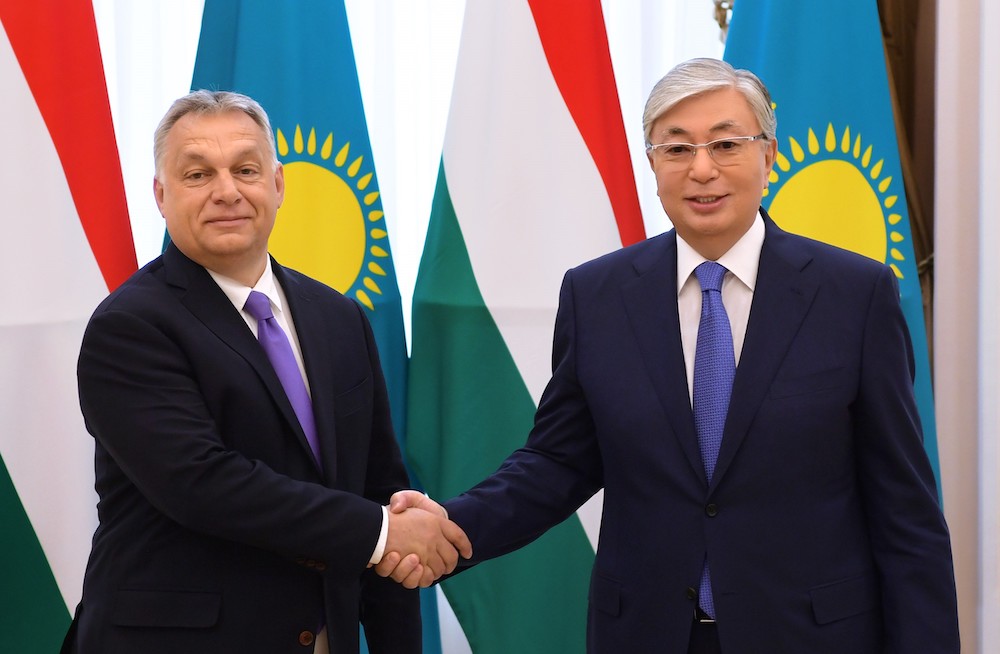 Image: Presidency of Kazakhstan/Handout/Anadolu Agency/Getty Images
Image: Presidency of Kazakhstan/Handout/Anadolu Agency/Getty Images "Editorial integrity is of the utmost importance to Getty Images and we take instances of image manipulation very seriously," a spokesperson for Getty told Motherboard. "We have strict rules regarding manipulated or otherwise inauthentic editorial images and these standards apply to staff photographers and governmental press offices-whose images we sometimes provide as a service to our subscribers-alike."
Getty said it removed the two images and is investigating the matter further.
"There is a sharp line between a user sharing an edited photo on Facebook and a news agency using an edited photo," Lyu said.
"For the level of influence and the credibility of news media," Lyu added, "most agencies like AP and Reuters have zero tolerance for any digital editing of photographs, regardless if the manipulation is innocuous or not."
This story has been updated to include a comment from Getty.